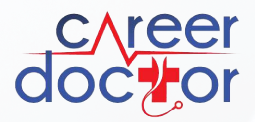
Recomendations:
Leadership Assessment
- Lead by example: As an excellent leader, you should lead by example and set the standard for your team. Show your team members how to behave, communicate, and work effectively.
- Focus on continuous improvement: Excellent leaders are constantly learning and improving. Work on developing a growth mindset and seeking out new opportunities for learning and development.
- Foster innovation: Excellent leaders are always looking for new and innovative ways to improve processes and products. Encourage your team members to think outside the box and come up with new ideas.
- Develop a strong network: Excellent leaders have
Specific Suggetions:
- 1. You are a strategic thinker and have the ability to rally your team to take action in the face of challenges. It is recommended that you continue to foster a collaborative and innovative team culture. Encourage open communication and idea sharing to help your team develop effective strategies to counter the competitor's product.
- 2. Encouraging team members to think outside of the box is a great way to foster innovative thinking and creativity. You are suggested to create an environment where team members feel comfortable sharing their ideas, even if they may seem unconventional or risky. Encourage experimentation and exploration, and be open to ideas that may not fit within the usual mold.
- 3. You’ve demonstrated great skills in aligning the efforts of your team members. However, it is important to also listen to their concerns and ideas and incorporate them into the project plan. This shows that you value their input and are working together as a team towards a common goal.
- 4. You are recommended to be more open to your team members and provide feedback to them about their idea. Additionally, you could encourage the team members to continue coming up with innovative solutions and let them know that their contributions are valued.
76.19% Emotional Intelligence Assessment
- Use your emotional intelligence to effectively navigate complex interpersonal situations.
- Serve as a mentor or coach to others who are working on developing their emotional intelligence.
- Continue to seek out opportunities to work with people from diverse backgrounds and perspectives.
- Use your empathy to build strong relationships with colleagues and clients.
- Foster a positive work environment by leading with emotional intelligence and encouraging others to do the same.
Specific Suggetions:
- 1. You have good self-awareness and are able to recognize your own emotions and the impact they may have on your work. Be sure to choose someone you trust and feel comfortable opening up to.
- 2. You have a good and proactive approach to criticism. Make sure to listen actively to your boss's suggestions and take them on board, even if they are critical or difficult to hear.
- 3. You have a good understanding of the importance of empathy in communication. Try to build better relationships with coworkers, leading to more effective workplace communication.
- 4. You have a high level of emotional intelligence which involves empathy, compassion, and a willingness to help a colleague in need. Furthermore, you possess the ability to provide practical assistance and resources for someone struggling with personal issues is an indication of strong interpersonal skills and a sense of responsibility towards coworkers.
- 5. You have empathy towards your colleagues who may be struggling and recognizes the importance of emotional support in the workplace. Also, you are emotionally intelligent and understand that everyone may face personal struggles that can impact their work, and therefore offers support and help when needed.
88.00% Teamwork Assessment
- Serve as a mentor or coach to less experienced team members to help them develop their teamwork skills.
- Encourage and facilitate cross-functional collaboration within the organization.
- Foster a culture of open communication and encourage all team members to share their ideas and feedback.
- Continuously work to improve your emotional intelligence and empathetic skills to better connect with your team members.
- Seek out opportunities to collaborate with other organizations or industries to broaden your perspective and bring fresh ideas back to your team.
Specific Suggetions:
- 1. You have good interpersonal skills and a willingness to understand your team members' challenges. Continue to build on these skills by actively listening to your team members and providing support when necessary.
- 2. It's important to remember that teamwork requires everyone to contribute. Try to work with the nervous team member to see how you can support them and help them overcome their fears. Maybe you can suggest ways for them to practice their presentation or offer to do a practice run with them.
- 3. Speaking to your manager about the issue without talking to the team member may lead to unnecessary conflicts and damage the team's morale. As a team member, it's your responsibility to address such issues with your team member first. Only after exploring all possible solutions should you approach your manager for assistance. This approach will demonstrate your ability to communicate effectively and resolve conflicts in a constructive manner.
- 4. You’ve demonstrated good teamwork skills. You are able to work collaboratively with your team members and value their opinions. Keep up the good work and continue to practice open communication and active listening skills to further improve your teamwork ability.
- 5. It's great that you recognize the importance of open communication within the team. You have a proactive approach toward improving communication and teamwork. Going forward, continue to have open and honest conversations with your team members to ensure everyone is working together effectively.
88.00% Cognitive Ability Assessment
- Consistently seek out new challenges to further develop cognitive abilities.
- Seek opportunities to lead or mentor others to enhance problem-solving and decision-making skills.
- Embrace failure as an opportunity to learn and grow, rather than a setback.
- Set ambitious goals and develop a plan to achieve them, breaking them down into smaller, achievable steps.
- Actively seek out feedback and engage in constructive self-reflection to identify areas of improvement.
Specific Suggetions:
- 1. You demonstrated a lack of respect for your colleague which can damage the team's morale and working relationship. Instead of criticizing in public, try to address your concerns in private and offer constructive feedback to improve the idea or approach.
- 2. You have a logical and analytical approach to problem-solving, which can be an asset in a crisis situation. However, it is important to balance this with creativity and flexibility, as crisis situations often require innovative solutions. You can work on building your creative thinking skills, which can help you generate new ideas and think outside the box.
- 3. You’ve shown that you understand the potential impact of the error on any important project and you are ready to take steps to address it. However, it is recommended that you continue to develop your ability to identify and solve problems by actively seeking out feedback and guidance from experienced team members. Keep in mind that seeking help is a strength, not a weakness.
- 4. You have strong problem-solving and critical thinking skills, as well as effective communication and collaboration abilities. For further improvement, continue to foster a team-oriented approach and encourage open communication and idea-sharing.
- 5. You’ve demonstrated a lack of communication skills and conflict resolution abilities. You Should have an open and honest conversation with your colleague before involving others. Your colleague may not even be aware that they are not meeting deadlines and may appreciate the opportunity to improve. If the problem persists, then it may be appropriate to involve management.
60.00% Personality Assessment
- Continue to seek feedback and challenge yourself to continue growing and learning.
- Share your expertise and knowledge with colleagues to help them grow and develop.
- Cultivate strong relationships with colleagues and other professionals to build a strong network.
- Consider taking on leadership roles to help guide and inspire others.
- Practice active listening, empathy, and emotional intelligence to continue building strong relationships with others.
Specific Suggetions:
- 1. You have a good trait to be open-minded and willing to accept constructive criticism. Take notes on any feedback you receive and ask follow-up questions to clarify any points you don't understand.
- 2. You have good preparation skills and cultural awareness.
- 3. You have good time management skills, and the ability to handle stress and pressure in a professional manner. Need to learn how to prioritize the most important tasks and work on those first, ensuring that they are completed well before the deadline. Don't be afraid to ask for help or delegate tasks to others if necessary, as this can help you to work more efficiently.
- 4. It seems that you value the input of other team members and are willing to take action to ensure everyone's voices are heard. You can try to lead by example and speak up when you have something to contribute, which may encourage others to do the same. If the colleague continues to dominate the conversation despite your efforts, you can consider discussing the issue with them privately or bringing it up with your supervisor if it's affecting the team's productivity or morale.
- 5. Have a positive and open mindset while approaching social situations. Be confident and friendly when introducing yourself and starting a conversation and try to find common interests or topics to discuss with the person you are talking to.
80.00% Creativity Assessment
- Keep challenging yourself to come up with new and innovative ideas.
- Foster an environment of creativity and encourage your colleagues to think outside of the box.
- Attend conferences or events focused on creativity and innovation to learn from experts in the field.
- Try to approach problems from different angles and perspectives.
- Regularly evaluate and reflect on your creative process to identify areas for improvement.
Specific Suggetions:
- 1. You are encouraged to work closely with your team to identify areas where you can make reasonable cuts in the budget without compromising the project's quality. Also, encourage them to think outside the box and come up with innovative ideas that can help them achieve the project's goals while staying within the budget.
- 2. You are recommended to avoid criticizing team members who suggest unrealistic designs. Instead, try to understand their perspective and work with them to refine their ideas. Constructive criticism is essential, but it should be given in a manner that encourages growth and learning.
- 3. You are recommended to continue to research and analyze the competition to identify areas of differentiation. Try to collaborate with other teams to develop innovative solutions that will help the company stand out in the market.
- 4. While it is okay to learn from the competition, you should not rely solely on your ideas. You are encouraged to conduct thorough research and analysis of the industry trends and customer needs to identify gaps and opportunities for innovation.
- 5. You are proactive and analytical, which is a great trait for teamwork. To improve your teamwork ability, you are recommended to share your research findings and analysis with your team and engage them in the decision-making process. You should also be open to feedback from your colleagues and consider their perspectives when making decisions.
64.00%

 Career Doctor Report
Career Doctor Report